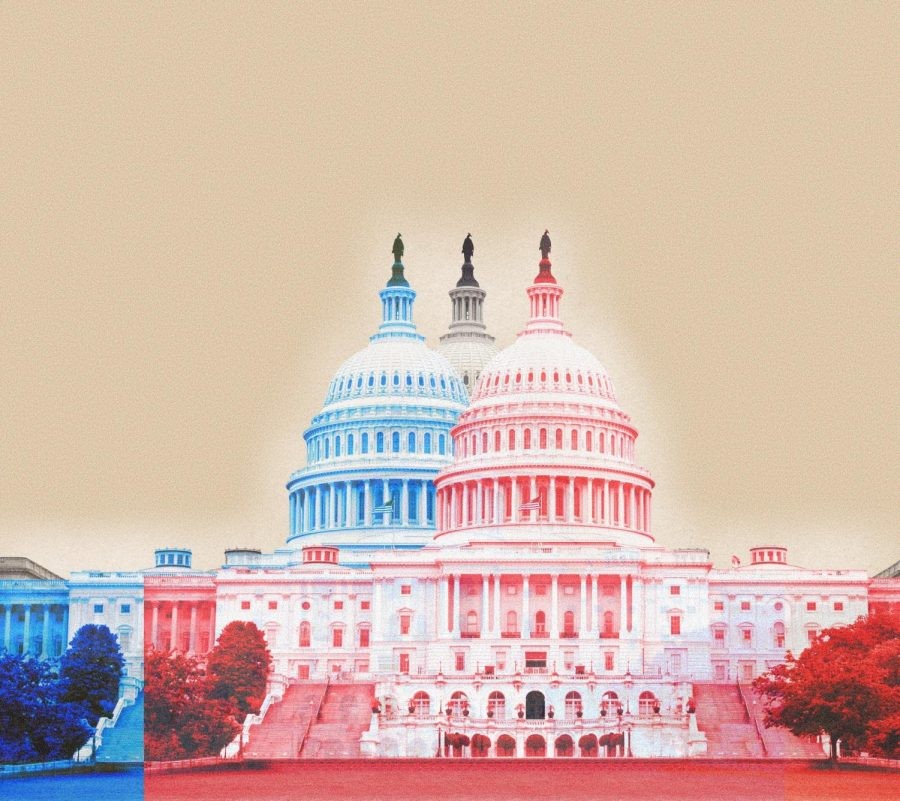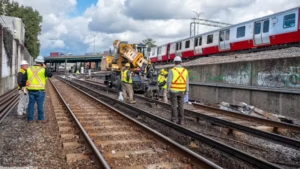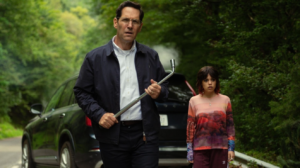Congressional Bipartisanship Is Not Dead

Image courtesy of Rebecca LiVigni
By Lauren Seliga
Our world is a noisy one. With mass shootings, hate crimes, and an ongoing pandemic taking over news headlines, Americans cannot catch a break, even in the new year; yet, even with continued crises, it seems as though Congress is more worried about party lines than solutions to help Americans. Partisan polarization in Congress has been growing over time and when Americans need their leaders to come together to formulate effective solutions the most, they could not be more divided. However, bipartisanship in Congress is not dead.
After months of stalled negotiations on a Covid-19 relief bill in the latter half of 2020, Representative Dusty Johnson of South Dakota put partisan politics aside and worked across party lines to reach a settlement to help struggling families, businesses, and communities in the wake of the Covid-19 pandemic.
“Last year, I worked with Minnesota Democrat Congressman Dean Phillips to get a Covid-19 relief package across the finish line,” said Representative Johnson. “These negotiations between Speaker Pelosi and President Trump were stalled for months – each side was holding out for the election, but Congressman Phillips and I built a bipartisan coalition and got talks started again.”
With the help of the Problem Solvers Caucus, Johnson and Phillips were successful in their efforts as their framework became law. Among other priorities, the relief package included $325 billion to support struggling businesses, $20 billion for increased testing across the country, $20 billion to ensure the vaccine is available to all at no cost, $8 billion for vaccine distribution, and $82 billion for schools.
Extreme partisanship in Congress only leads to the needs of suffering Americans going unmet. There needs to be more bipartisan cooperation to have those challenging conversations as we have seen with Congressmen Johnson and Phillips.
When referring to the passive of the Covid-19 relief bill, Johnson said: “That’s what happens when Republicans and Democrats have the tough conversations, set aside their differences, and focus on helping real Americans. I’m proud of that accomplishment.”
Republicans and Democrats will always have their political differences, but our government leaders should be able to come together in a civil manner to compromise in creating policies that help Americans and make our nation stronger. The problems that plague our nation are not unsolvable, but they remain largely unsolved as a result of hyperpartisanship and playing the game of politics. Partisan conflict is necessary for democracy but partisan polarization can lead to democratic instability.
Polarization is not just disagreement over a policy solution, but the refusal to even work with a colleague to find a solution because they have a different opinion. This hyperpartisanship causes gridlock in Congress in which legislation is unable to be passed, leaving struggling Americans without help and critical problems without solutions. The absence of bipartisan cooperation in Congress only delays necessary action and aid in crises. By putting country before career and people before politics, our nation’s leaders could work to enact effective solutions for suffering communities. Although bipartisanship efforts exist right now, they are few and far between.







